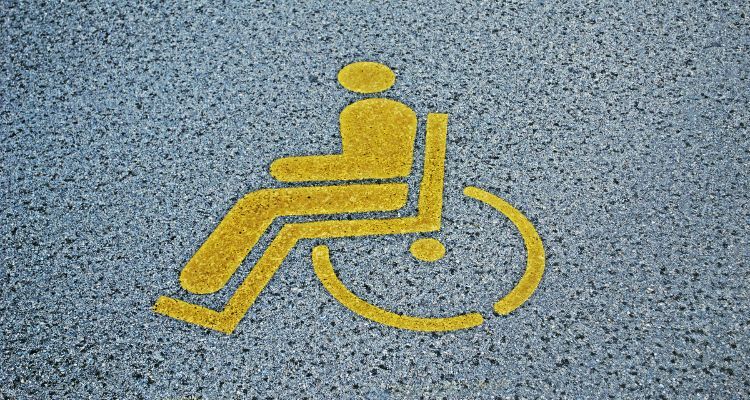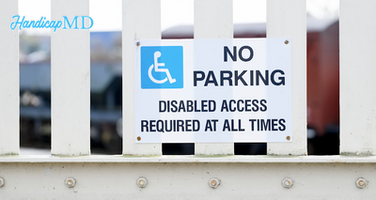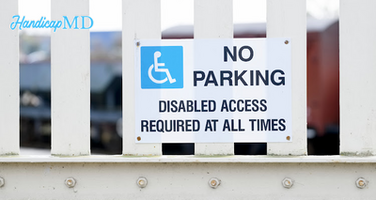
The Impact of Disability Tag Abuse and How to Report It in Nebraska
Disability tags, also known as disability placards or parking permits, are critical tools that provide access to designated accessible parking spaces for individuals with mobility impairments. These tags allow people with disabilities to park closer to the entrances of public buildings, stores, medical facilities, and more, easing the challenges they face in their daily routines. However, despite the critical importance of these permits, disability tag abuse is a pervasive issue in NE, as it is in many other states.
The misuse of disability tags not only creates inconvenience for those who genuinely need them but also undermines the purpose of accessible parking laws. Such behavior can have serious consequences, not only for those who engage in it but also for the broader community of people with disabilities. In this article, we’ll discuss the various forms of handicap placard abuse, the penalties associated with it, and how Nebraskans can report violations. Additionally, we’ll provide a helpful FAQ section to answer common questions related to disability tag use in NE.
Understanding Handicap Placards in Nebraska
What Are Disability Tags?
Disability tags are permits issued by the Nebraska Department of Motor Vehicles (DMV) to individuals with physical conditions that limit their mobility. These tags come in the form of placards or special license plates that provide access to parking spaces marked with the international symbol of accessibility. The goal of these tags is to facilitate ease of access for people who face significant mobility challenges.
Why Are They Important?
The ability to park in accessible spaces can be life-changing for individuals with disabilities. These designated spots are wider and located near the entrances of buildings, making it easier for those with mobility aids or chronic health conditions to manage their daily activities. Disability tags are a matter of equity, leveling the playing field for people who would otherwise struggle with the demands of parking farther away and navigating large parking lots.
Types of Disability Tags in NE:
- Temporary Disability Tags: Issued for short-term disabilities and valid for up to six months.
- Permanent Disability Tags: For long-term or lifelong disabilities, valid for up to six years and renewable.
- Disability License Plates: Affixed permanently to a vehicle owned by the individual with the disability or their family member, allowing easier access to designated spaces without the need for a separate tag.
Eligibility: To qualify for a handicap permit in NE, an applicant must meet specific medical criteria, verified by a licensed healthcare professional. These criteria include severe impairments that affect mobility, such as:
- Inability to walk 200 feet without stopping to rest.
- Severe lung or heart disease.
- Use of portable oxygen.
- Severe physical limitations due to neurological or orthopedic conditions.
Steps to Apply for a Disability Tag in Nebraska
Applying for a Nebraska handicap placard involves filling out an application form and obtaining medical certification. Here’s a step-by-step guide to help you through the process:
1. Obtain the Application Form: The Application for Handicapped Parking Permit (Form MVDC-20) is available on the state's DMV website. You can download and print the form or pick up a physical copy at your local DMV office.
2. Complete the Applicant Section: In the first section of the form, provide your personal details, including your name, address, date of birth, and contact information. If you are applying for a permanent or temporary tag, indicate this on the form.
3. Have a Licensed Healthcare Provider Complete the Certification: The next section of the application form must be completed by a licensed HandicapMD healthcare provider. Accepted healthcare providers include physicians, nurse practitioners, chiropractors, and physician assistants. They will assess your medical condition and certify that you meet the state’s eligibility criteria for a disability tag. This certification should confirm whether your disability is temporary or permanent, as this determines the type of tag issued.
4. Submit the Application: After completing the form and obtaining the necessary certification, submit your application to the state's DMV. You have a few options for submission:
- In-person: Visit your local DMV office to submit the completed application in person.
- By mail: Mail the completed form to the address provided on the DMV website or application form.
5. Processing and Approval: Once the DMV receives your application, they will review the details and verify eligibility. Most applications are processed within a few weeks. If approved, your disability tag or plate will be mailed to the address provided, or you may be notified when it’s ready for pickup at the DMV office.
Types of Disability Tag Abuse
Disability tag abuse comes in many forms and negatively impacts individuals who rely on accessible handicap parking. Here are some of the most common types of misuse:
Using a Tag Without the Permit Holder Present
One of the most prevalent abuses is when someone uses a disability tag without the individual to whom it was issued being present. For example, a family member may use the tag to park in a more convenient spot, even though the person with the disability is not in the car. This is a clear violation of NE’s regulations, which state that disability tags are only to be used when the permit holder is either driving or being transported in the vehicle.
Using an Expired or Altered Tag
Disability tags have expiration dates, and using one that has expired is illegal. Similarly, altering a tag to extend its validity or obscure the information is considered fraudulent and carries significant penalties. Even if you still qualify for a tag, it is crucial to renew it on time to avoid misuse.
Counterfeiting or Duplicating a Disability Tag
Creating a fake disability tag or duplicating an existing one is a serious offense. People who engage in this type of fraud are not only breaking state laws but also depriving legitimate users of much-needed parking spaces. Counterfeiting or tampering with a government-issued tag can lead to criminal charges.
Parking in Accessible Spaces Without a Valid Tag
Parking in an accessible space without displaying a valid disability tag is a violation of the state's parking laws. These spaces are reserved exclusively for vehicles with a properly displayed tag or license plate, and misuse can result in hefty fines and other penalties.
The Impact of Handicap Placard Abuse on People with Disabilities
Handicap placard abuse has far-reaching consequences, primarily for individuals with disabilities who genuinely rely on accessible parking to participate in daily life. Here’s a closer look at the impact:
1. Reduced Availability of Accessible Parking Spaces: When people misuse disability tags to park in accessible spaces, it limits the availability for those who genuinely need them. This can make it challenging for individuals with disabilities to find suitable parking, especially in busy areas where these spots are already limited.
2. Increased Physical and Emotional Strain: The lack of accessible parking options forces some people with disabilities to park farther away from entrances, which can cause unnecessary physical strain and even injury. For individuals who use wheelchairs, walkers, or other assistive devices, this added distance can be exhausting and may discourage them from accessing certain locations altogether.
3. Erosion of Public Trust: Disability tag abuse also fosters public mistrust, leading some people to view all authorized holders with skepticism. This can cause unnecessary questioning or harassment for individuals who genuinely need accessible parking, making their experiences more stressful and less dignified.
4. Financial Impact: In NE, disability tags are issued without cost for eligible individuals. However, misuse can result in fines and other penalties, both for those who use tags without authorization and for those who enable misuse by lending their tags to others.
Nebraska’s Penalties for Disability Tag Abuse
The state's law enforces strict penalties to discourage the misuse of disability tags. These measures are intended to protect the rights of individuals with disabilities by ensuring accessible parking spaces are available to those who need them.
1. Fines:
- First-time offenses for disability tag misuse can result in fines up to $150.
- Repeat offenders may face higher fines and additional penalties.
2. Suspension or Revocation of Disability Tag: In severe cases or repeated offenses, the DMV may suspend or permanently revoke the disability tag or license plate. This measure is a way to ensure that accessible parking privileges are only granted to those who genuinely qualify.
3. Criminal Charges for Fraudulent Activity: If an individual is found guilty of forging, altering, or creating a fake disability tag, they may face criminal charges. Fraudulent activities related to disability tags are considered a serious offense and can lead to legal consequences, including potential jail time.
4. Points on Driving Record: Some violations, particularly those involving fraudulent tags or unauthorized use, may result in points on the offender’s driving record, which could affect their insurance premiums and driving privileges.
5. Legal Implications and Enforcement: Beyond financial penalties, individuals who commit severe violations, such as using a counterfeit tag, may face criminal charges. Law enforcement officers in NE are trained to recognize disability tag misuse and have the authority to issue citations and, in some cases, confiscate the tag on the spot. Repeat offenders may also face additional consequences, such as the suspension of their driver’s license.
6. Impact on Individuals with Disabilities: The most significant consequence of disability tag abuse is the impact it has on people with disabilities. When accessible parking spaces are occupied by individuals who do not need them, it forces those with genuine needs to park farther away, potentially causing pain, fatigue, or other health complications. Abuse undermines the purpose of accessible parking and can make daily life significantly harder for people who already face numerous challenges.
How to Report Handicap Placard Abuse in Nebraska
Steps for Reporting Violations
If you suspect someone is misusing a disability tag, reporting it can help protect the integrity of the system and ensure that accessible parking remains available for those who need it. Here are the steps to follow:
1. Gather Information: If you witness potential abuse, take note of the vehicle’s license plate number, make, model, and color. You may also want to record the time and location of the incident, along with any specific details about the misuse.
2. Contact Local Law Enforcement: In NE, most reports of disability tag abuse are handled by local law enforcement agencies rather than the DMV. Contact your local police department’s non-emergency number to report suspected misuse. Be prepared to provide as much information as possible, but remember that your report can usually remain anonymous.
3. File a Complaint with the Nebraska DMV (if applicable): If you suspect systemic or repeated misuse, you can contact the state DMV to report the abuse. While local law enforcement handles most cases of immediate misuse, the DMV may be involved if fraud or forgery is suspected.
4. Don’t Confront the Suspected Abuser: It is recommended that you avoid direct confrontation with the individual you believe is misusing the disability tag. Instead, leave the matter to law enforcement to handle the investigation and enforcement of penalties.
What Information to Provide
- Description of the vehicle, including make, model, and color.
- License plate number and any visible disability tag details.
- Location of the incident, including the name of the establishment or address.
- Any other relevant information, such as photos (if you can safely take them).
Who to Contact
You can report violations to your local police department or the Nebraska DMV. Some municipalities also have dedicated parking enforcement divisions that handle accessible parking violations.
Prevention and Awareness
Educating the Public
One of the most effective ways to prevent disability tag abuse is through public awareness. Many people do not understand the challenges faced by individuals with disabilities and may not see the harm in “borrowing” a relative’s tag. Educational campaigns can highlight the impact of misuse and encourage ethical behavior.
How Communities Can Help
- Businesses and property managers can enforce accessible parking rules on their premises and ensure that spaces are clearly marked.
- Community groups can advocate for better enforcement and provide resources to educate the public about the importance of accessible parking.
Frequently Asked Questions (FAQs)
1. Can out-of-state disability tags be used in NE?
Yes, NE honors out-of-state disability tags. Visitors with a valid disability tag or license plate from another state can use accessible parking spaces in NE, but they must follow all local parking regulations.
2. How long is a NE disability tag valid?
- Permanent passes are valid for up to six years and must be renewed upon expiration.
- Temporary passes are valid for up to six months and require updated medical certification if renewal is needed.
3. Can a lost or stolen tag be replaced?
Yes, you can request a replacement for a lost or stolen disability tag through the state DMV. You may need to provide identification and complete a replacement application form.
4. What should I do if I see someone misusing a disability tag?
If you witness disability tag abuse, report it to local law enforcement or the state DMV. Provide as much information as possible, including the vehicle’s license plate number and the location of the violation.
5. Are there penalties for falsely reporting disability tag misuse?
Yes, making false reports can lead to legal consequences. It is important to report only genuine instances of suspected abuse and to provide accurate information.
6. What should I do if someone is using a family member’s disability tag without them present?
If the person with the disability is not in the vehicle, it is illegal for others to use their tag. You can report the misuse to local law enforcement by providing details about the vehicle and location.
7. Can I report disability tag abuse anonymously?
Yes, most reports of disability tag abuse can be made anonymously through your local law enforcement agency. Anonymous reporting allows individuals to protect their privacy while helping maintain the integrity of accessible parking.
8. How can I tell if someone is misusing a disability tag?
While it’s not always easy to tell, signs of misuse may include individuals parking in accessible spaces without a visible disability or using an expired or invalid tag. If you are unsure, it’s best to report it to law enforcement for investigation.
9. What happens if I accidentally display my tag incorrectly?
If you accidentally fail to display your tag properly, such as leaving it upside down or not hanging it from the rearview mirror, you may receive a ticket. To avoid this, make sure your tag is correctly positioned whenever you park in an accessible space.
10. Are there penalties for altering or forging a disability tag?
Yes, altering or forging a disability tag is considered fraud and carries serious penalties, including fines, criminal charges, and potential jail time. This offense undermines the integrity of the system and is treated seriously in Nebraska.
Conclusion
Disability tag abuse is a significant issue that affects individuals with disabilities who rely on accessible parking spaces to navigate their daily lives. In NE, the misuse of disability tags undermines the accessibility system, causing inconvenience, added physical strain, and sometimes financial penalties for those who genuinely need these accommodations.
By understanding the impact of disability tag abuse and knowing how to report it in Nebraska, individuals can play a role in preserving the integrity of accessible parking privileges. Proper use of disability tags helps maintain a fair and respectful parking system, ensuring that these valuable resources are available to those who truly require them. If you encounter suspected misuse, follow the appropriate reporting channels, and let local authorities handle the matter.
Together, we can help create a more inclusive and supportive environment for all, protecting the rights and privileges of individuals with disabilities in NE.
.png)






